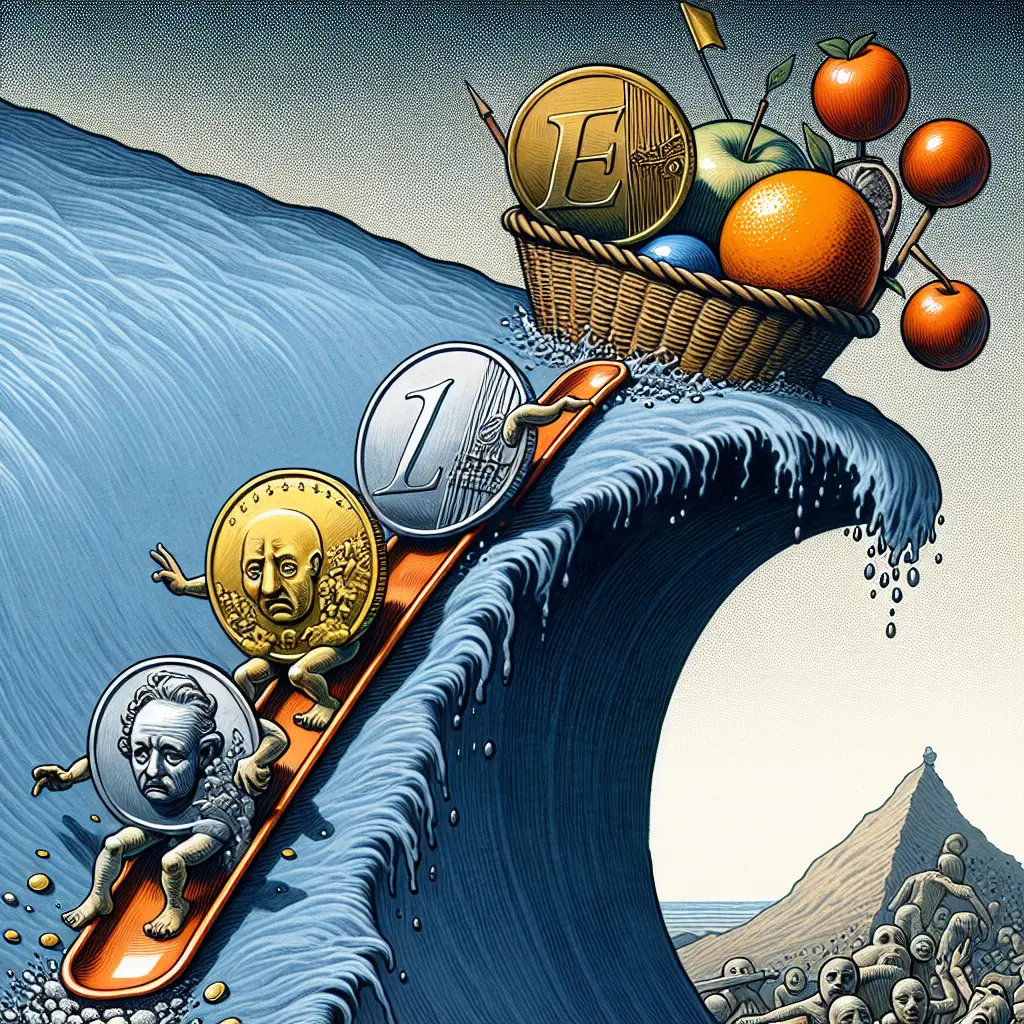In the rapidly evolving landscape of financial technology, XRP has emerged as a transformative force, reshaping the way we perceive remittance services worldwide. As businesses and individuals increasingly demand efficient and reliable methods for cross-border transactions, XRP offers a compelling solution. Its influence on global payments is undeniable, providing XRP business solutions that are both innovative and accessible. With the capacity to revolutionize XRP cross-border transactions, this digital currency stands out for its exceptional cost efficiency and transaction speed, making it a preferred choice for XRP money transfer and international payments.
XRP's blockchain technology empowers financial inclusion by bridging gaps in the remittance industry, offering competitive advantages through reduced fees and enhanced security. For businesses seeking to streamline their payment processes, XRP's adoption is a strategic move towards modernizing their operations. The integration of XRP payment gateway systems has enabled enterprises to harness the potential of digital currency, driving a wave of XRP market impact that cannot be overlooked.
Partnerships with banks and financial institutions further underscore XRP's commitment to advancing remittance services. These collaborations highlight its use cases in remittances and cement its position as a leader in financial technology. As businesses worldwide seek to capitalize on XRP's unique attributes, understanding its market dynamics and adoption trends becomes crucial. This exploration delves into how XRP is redefining the remittance landscape, offering unparalleled business opportunities and setting the stage for a new era of global financial transactions.
In today's fast-paced global economy, the demand for swift and cost-effective remittance services has never been higher. XRP remittance services are at the forefront of this revolution, offering transformative solutions that cater to the evolving needs of both businesses and individuals. The impact of XRP on global payments is substantial, characterized by its cost efficiency and rapid transaction speeds. But how exactly does XRP reshape the landscape of cross-border transactions? Let's delve deeper.
At the heart of XRP's innovation is its blockchain technology, which fundamentally alters how cross-border transactions are conducted. Unlike traditional banking systems that often involve multiple intermediaries, leading to higher costs and delays, XRP facilitates direct peer-to-peer exchanges. This process reduces transaction fees significantly, enhancing cost efficiency and making it a preferred choice for XRP money transfer and international payments.
XRP's Influence on Remittance Services Worldwide
Consider the example of a partnership between Ripple (the company behind XRP) and Santander Bank. This collaboration has enabled Santander to offer its clients same-day international transfers at lower costs compared to conventional methods. By leveraging XRP's blockchain technology, Santander not only reduces operational costs but also provides a more streamlined and reliable service for its customers.
Financial inclusion is a key component of XRP's mission. In many parts of the world, access to traditional banking services remains limited. XRP's blockchain technology bridges this gap by providing a digital currency platform that is accessible to anyone with internet connectivity. This inclusivity ensures that even unbanked populations can participate in global commerce, thus expanding economic opportunities.
Take, for instance, the implementation of XRP payment gateways in rural communities within developing countries. These gateways enable local businesses to conduct international transactions without the need for traditional banking infrastructure. As a result, small enterprises can access global markets, fostering economic growth and development at the grassroots level.
RippleNet, an enterprise blockchain solution by Ripple, exemplifies the practical applications of XRP in remittance services. With over 300 financial institutions in more than 40 countries as partners, RippleNet showcases XRP's competitive advantage in enhancing cross-border transaction efficiency. This network allows for real-time settlements and transparency, which are crucial for businesses seeking to optimize their payment processes.
Real-World Use Cases: RippleNet's Expansion
One notable case study involves a Southeast Asian financial institution that integrated RippleNet to facilitate remittances for its diaspora population working abroad. By utilizing XRP, the institution reported a 70% reduction in transaction costs and a significant increase in user satisfaction due to faster processing times.
XRP's strategic partnerships with banks and other financial institutions are pivotal to its growing influence in the remittance industry. These collaborations not only validate XRP's utility but also expand its reach and adoption across different markets. For example, a recent partnership between Ripple and the National Bank of Egypt has opened new corridors for remittances between Egypt and the United Arab Emirates, two key markets with high remittance volumes.
Such partnerships highlight XRP's use cases in remittances and cement its position as a leader in financial technology. They also demonstrate how financial institutions can benefit from adopting XRP business solutions to enhance their service offerings and remain competitive in an increasingly digitalized economy.
As XRP continues to redefine global payments, staying abreast of regulatory developments is crucial. In 2023, significant regulatory clarity was achieved when several countries established guidelines for the use of digital currencies like XRP in financial transactions. This development has bolstered investor confidence and facilitated further XRP adoption in business settings.
For instance, regulatory approval in the European Union has allowed financial entities to incorporate XRP into their service offerings more seamlessly. This move not only enhances XRP's market impact but also positions it as a viable option for enterprises looking to innovate their payment systems.










Leave a Comment